Brewery Showcase | Subversive Malting and Brewing
For Subversive Malting and Brewing, making their own malt is not just about quality, control and flavor. Their carbon footprint, relationships with farmers, and the local economy are perhaps more important. While slogans like “go local” are often used in the craft beer community, creating a truly local product is nearly impossible for most due to the lack of local grain and malthouses. Subversive is working hard to make it happen.
Opening their beer cafe earlier this year in Catskill, New York, Subversive is diversifying the growing Hudson Valley beer scene by malting grain themselves. The brewery got my attention when I attended the 2019 NYC Brewer’s Choice event, which focused on the use of local grains and malts. There are very few malthouses employing the traditional floor-malting method as practiced by Subversive. Even fewer breweries are making malt. (For a quick background, malthouses take grain typically grown elsewhere and convert it into a product that is suitable for brewing by steeping the grain, allowing it to germinate, and then kiln drying it. The process allows each batch to be treated in a way that can result in a different color and flavor. Perhaps most important is that it provides fermentable sugars that yeast will later feed on to produce CO2 and alcohol.)
The overwhelming majority of malt utilized by brewers is made by large industrial operations in the Northern Plains of the United States and Canada, and other sources overseas. These operations malt grain on a massive scale in a much more mechanized process in comparison to the traditional floor malting method. Not surprisingly, many argue the more hands on approach through floor malting allows for the creation of an artisanal product that is superior in quality.
While the number of craft malting facilities is slowly growing across the country, in New York State, access to local grain and malt is becoming particularly important for brewers operating with a farm brewery license. In 2019, this license required 60-percent of a brewery’s ingredients to come from New York. By 2024, this will jump to 90-percent.
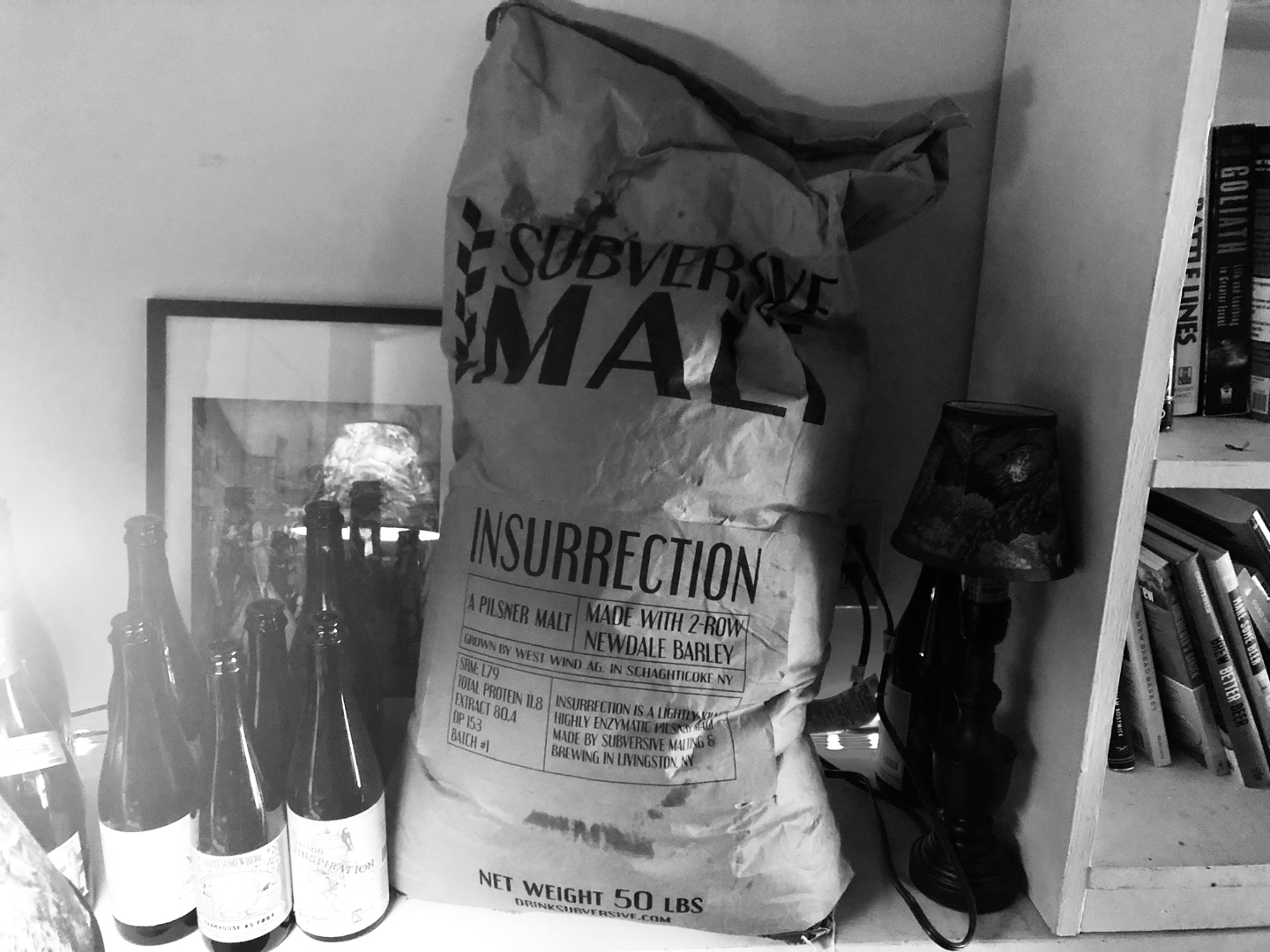
Subversive owners Zane Coffey and Max Ocean were avid homebrewers, looking to open a brewery in their native New York State. Along the way, Ocean started to think more about the grain he was milling at his homebrew shop. Reflecting on this, he says “growing up in the Hudson Valley, we were surrounded by an emerging ag-tourism sector…with small-scale and niche producers of all kinds popping up seemingly overnight. As someone who had for some time believed strongly in re-establishing regional food systems, on a personal level, I couldn’t believe that the “local” beer I’d been drinking was dependent on a highly-mechanized and industrial global supply chain.” Consequently, Subversive Malting and Brewing was born.
A New York State map hangs in Subversive’s cafe, indicating the source of their ingredients. Recently, a significant portion of their grain supply shifted to an even closer location. They are now transitioning to a source for their base malts from a farm that is just 15 miles away from the brewery. This farm is providing them with organic 6-row barley. Factoring in their specialty grain, this footprint for their grain supply expands just a bit further, but all less than 50 miles away.

The use of 6-row barley has had a negative connotation in the craft beer world, but that is changing. Ocean sees many positives to using this grain as it has a historical connection to the region, and is likely to fare better with future changes in climate. They are not the only ones in the Hudson Valley giving 6-row a shot. Industrial Arts, Suarez Family Brewery and Plan Bee have all made use of the grain as well.
Ocean notes “the way we do every step of the process is still much more manual than most craft maltsters. Since we’re brewing with the malt, we can certainly be a bit less concerned with some of these efficiencies because we’re adding another layer of value to the product, but at the same time, it’s really amazing to realize what a massive amount of work can be saved by a small piece of equipment or technology (for example, for the entire first year we were malting, one of us would have to sleep at the malthouse twice per batch, just to wake up and flip a valve on the tank to steep out. The motorized solenoid valves that we have now––less than $500 total, if I recall–– eliminated the need for this and thus were obviously worth every penny!)” That’s a big deal, considering the business runs on a lean staff. It’s pretty much just Ocean and Coffey.
With the goal of supplying all of their own malt, Subversive was immediately faced with a problem many small breweries grapple with. Space. If they wanted to come close to a level of output of beer consistent with their vision, they needed to make three times the malt allowed in their original setup, and therefore a larger facility for brewing and malting operations was needed. Thus, work began on a new space.
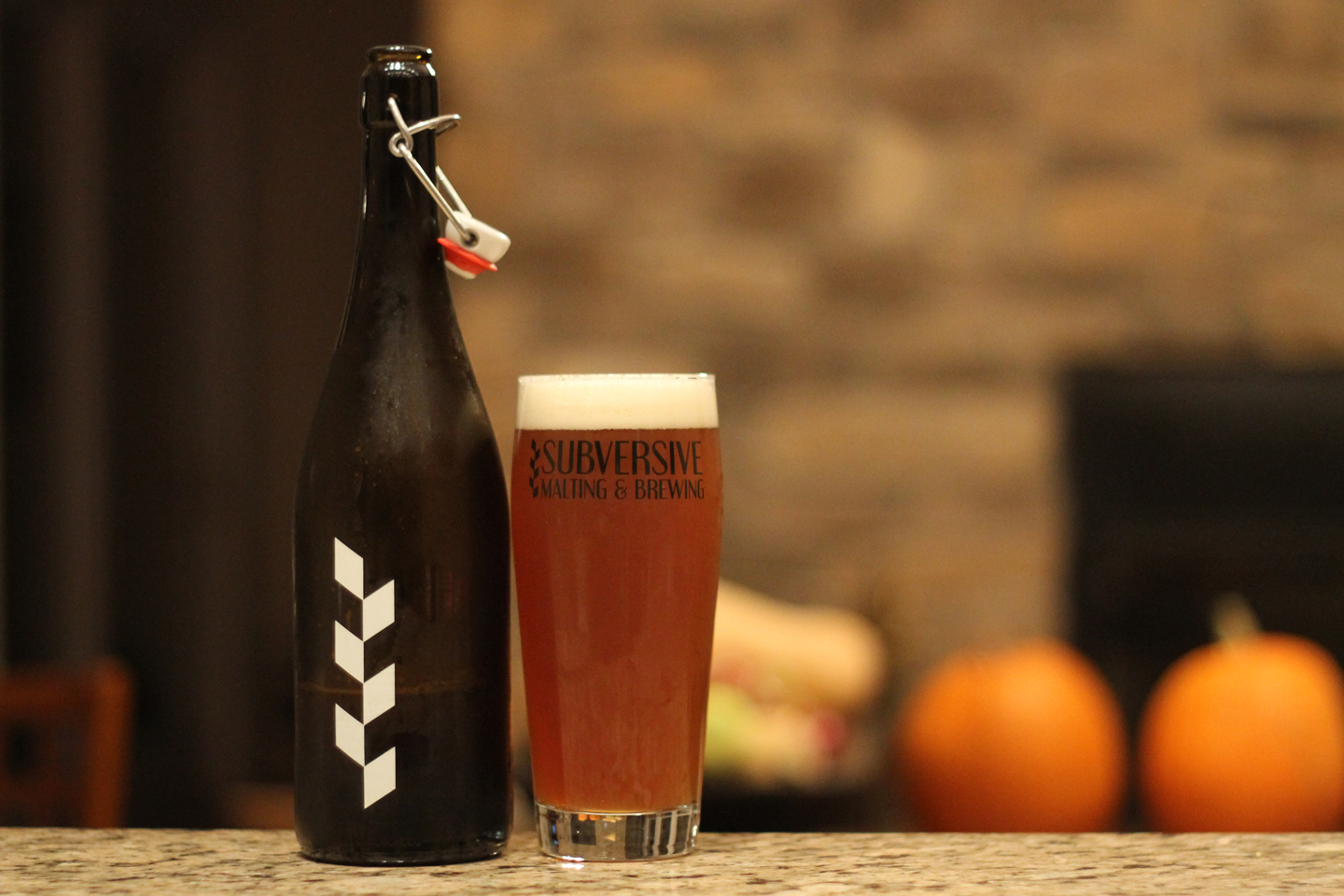
If making malt and brewing beer wasn’t enough, Coffey and Ocean did most of the work on the new facility themselves. There, they can go beyond the Vienna, Pale and Pils malt they focused on up until now. For Ocean, he’s interested in making an acidulated rye malt, malted spelt, oats, wheat, et. al. He would also love to use heritage/non-traditional grains.
Subversive began malting at their new location this fall. Malt production is now on track to allow Subvervise to hit their target beer production. While the original cafe will remain their primary location to interact with customers. However, they do hope to have the new facility open with limited hours in the near future. They hope to provide a portal into the malting process, which is something rather unique.


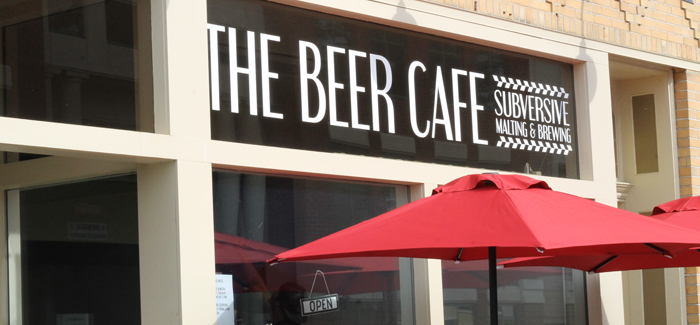

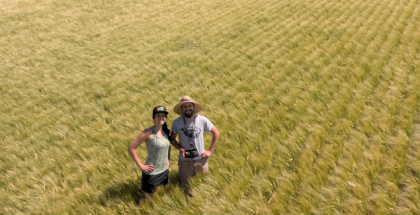
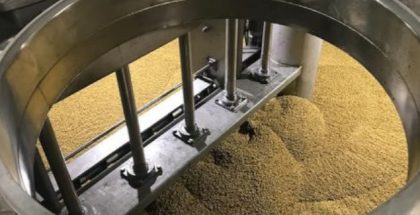


Submit a Comment